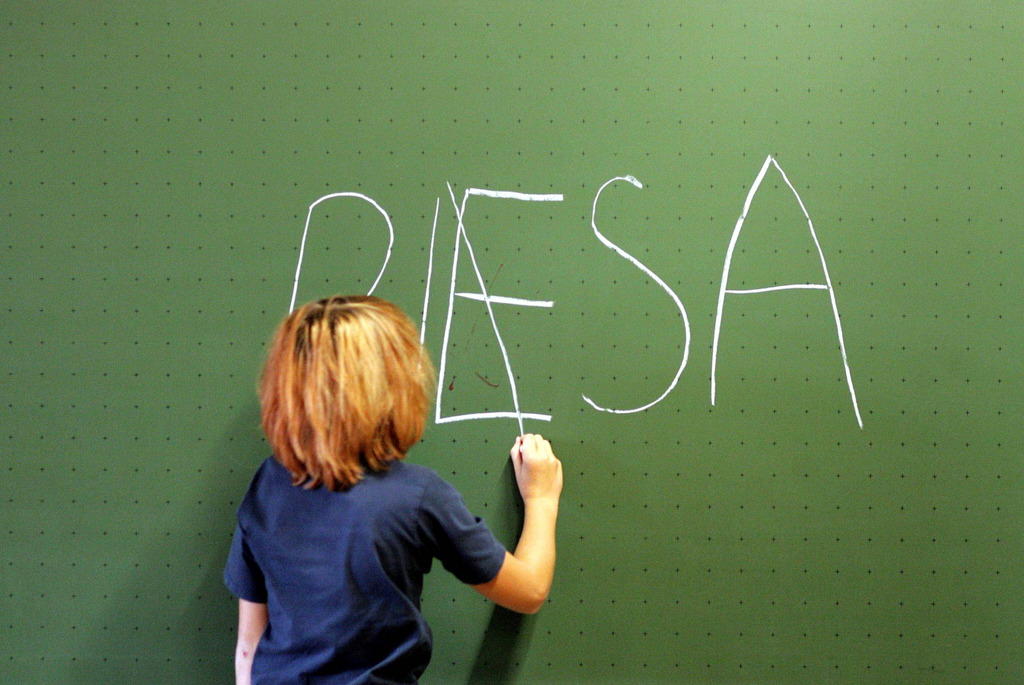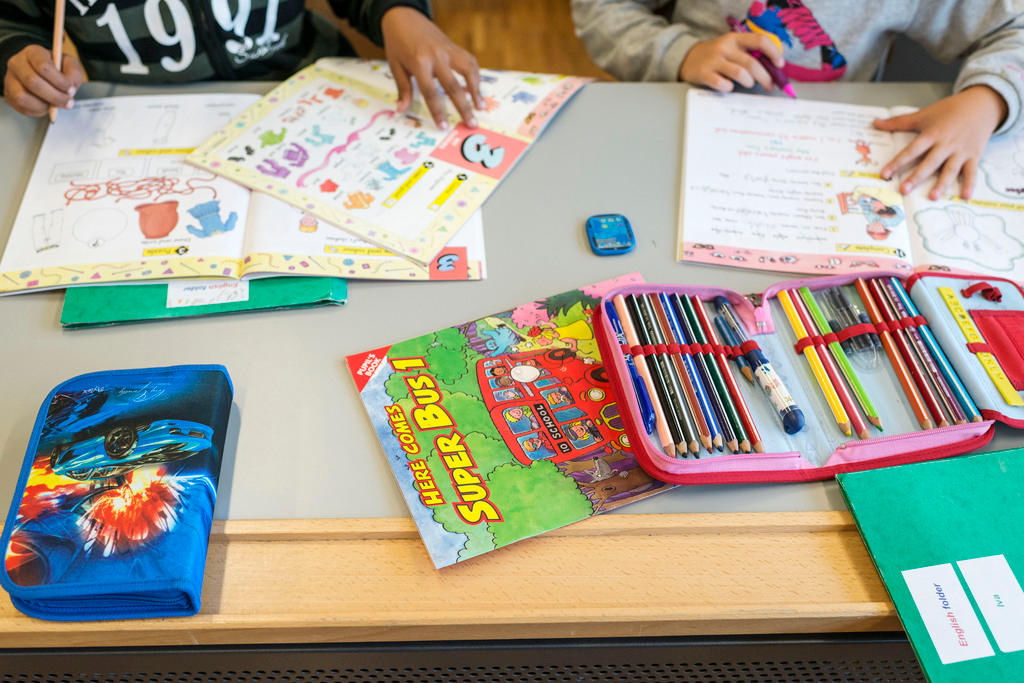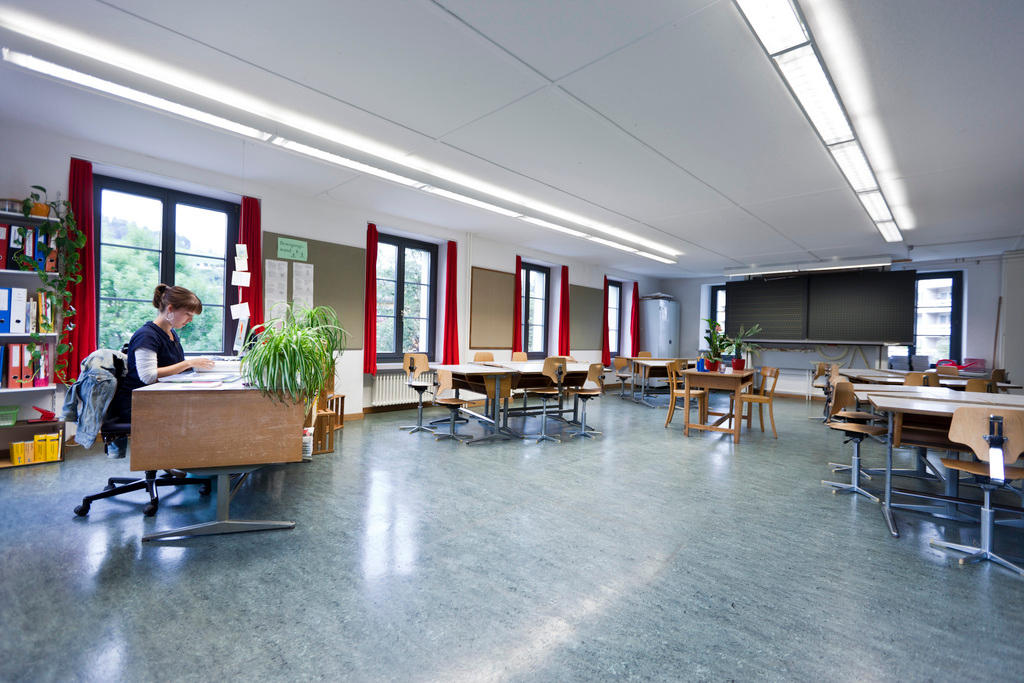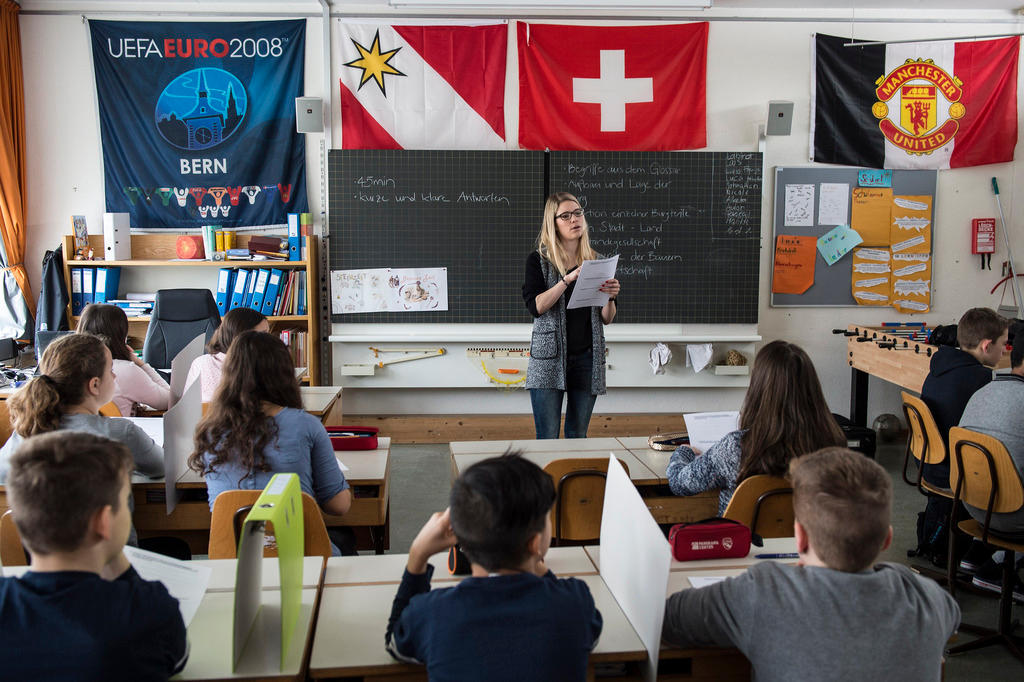High-achieving pupils still attracted to teaching

The teaching profession remains an attractive choice for talented young people in Switzerland, an Organisation for Economic Co-operation and Development report has found. The rate is higher than the OECD average.
In all, 6% of all 15-year-olds answered “teacher” to the question “what kind of job do you expect to have when you are 30 years old”, according to the Effective Teacher Policies: Insights from PISA reportExternal link that was released on Monday.
This was more than the 4.2% average across OECD countries and more than the share of teachers in the labour force (2.4% OECD average).
The rate was also higher than in some other top-performing PISA countries such as Finland (4.6%) and Singapore (4.4%).
Like in other OECD countries, more girls in Switzerland opted for teaching (9%) than boys (3%).
Best students
And the students wanting to teach were among the best students. “…perhaps a reflection of the fact that the teaching profession in Switzerland is relatively well-paid, is valued by society and provides attractive opportunities for professional growth,” OECD analyst Francesco Avvisati told swissinfo.ch in email comments.
In Switzerland a secondary school teacher’s starting salary as reported in 2017 was CHF67,483 ($69,000). However, there have been concerns raised over teachers’ workload and stress levels.
+ Read more about the risk of teachers’ burnout here
The report also looked at how countries could ensure that high quality teaching benefitted all pupils.
Teaching and PISA results
“This new report shows that as for most high-performing countries, Switzerland’s success in PISA can be traced back to a well-designed system of teacher preparation, selection, and professional development. While there are differences between the group of countries that succeed in PISA, they all have in common the fact that lifelong learning and professional inquiry are part of teachers’ job description,” Avvisati said.
In its 2015 PISA report on education systems around the world, the OECD found that Switzerland was one of the countries in which chances of success were most strongly determined by socio-economic status (as shown by parental education, occupation and wealth).
Avvisati said outcomes for students could also be related to aspects of teacher policies.
“In Switzerland, schools that concentrate high levels of disadvantaged students do not seem to benefit from additional or better-quality teachers. In almost half (44%) of the most disadvantaged schools, principals report that that the school’s capacity to provide instruction is hindered to some extent by a lack of teaching staff, a much higher percentage than in the most advantaged schools (3%),” he commented.
“Channelling additional resources to the most challenging schools could help ensure fairer opportunities for all children, regardless of their social background.”
Reaction
In reaction, the Federation of Swiss TeachersExternal link general-secretary Franziska Peterhans said the increasing demands and duties placed on teachers meant that teacher training should be improved even further in Switzerland. This included in areas such as individualised learning, as well as new topics such as computer science and programming. The German-speaking federation and the Union of French-speaking Teachers in Switzerland External linkfeel, for example, that new primary school teachers need a Masters degree.
Social equality was also of high importance, she added. It was true that there were some quality issues among teachers: some of those available don’t have the right qualifications for their class level or subject.
Overall, the teacher shortage differs across the cantons, but it is acute for special needs teachers in particular. More investment and efforts are needed to counter these problems, Peterhans said. Teachers must be able to gain further qualifications, with support from their employers. And enough new teaching recruits must be found, she added.
On the fact that many young people could envisage being teachers, Peterhans said via email that although many teachers currently said they enjoyed their work, there had been education funding cuts, something the federation is against. “In recent years there has been a worsening of work conditions and unfortunately also in the status of teachers in society,” she added. “The federation also sees the lack of career development perspectives as a problem.”

More
PISA survey: young Swiss are the best at maths in Europe

In compliance with the JTI standards
More: SWI swissinfo.ch certified by the Journalism Trust Initiative













You can find an overview of ongoing debates with our journalists here . Please join us!
If you want to start a conversation about a topic raised in this article or want to report factual errors, email us at english@swissinfo.ch.